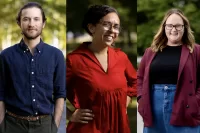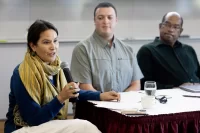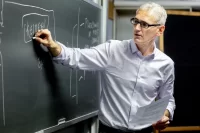
Bates College recently announced appointments of nine faculty members to endowed professorships.
“Endowed professorships at Bates are a testament to the high aspirations of Bates donors and a powerful recognition of the sustained excellence of our faculty,” said Malcolm Hill, vice president for academic affairs and dean of the faculty.
At Bates, faculty members hold endowed, named professorships for a 10-year term. Professorships include an annual stipend, additional funding for professional development, and the gift of a Bates chair commemorating their award.
“These appointments honor individual faculty achievement while providing critical support that strengthens their teaching and scholarship,” said Hill. “Endowed professorships help Bates attract and retain outstanding educators and scholars, reflecting our commitment to advancing academic rigor, scholarly impact, and superior teaching within our community.”
Each fall, Bates celebrates new appointments to endowed chairs, which often includes a lecture presentation to the Bates community focused on their scholarship.
Here are the faculty who have been appointed to endowed chairs since 2022:
Paul Shea, Dowling Family Professor of Economics
Term: 2023–2024 to 2032–2033
Paul Shea’s students routinely express appreciation for how he makes complex topics accessible to all. His Bates courses focus on macroeconomics and include topical offerings such as “The Great Recession.”
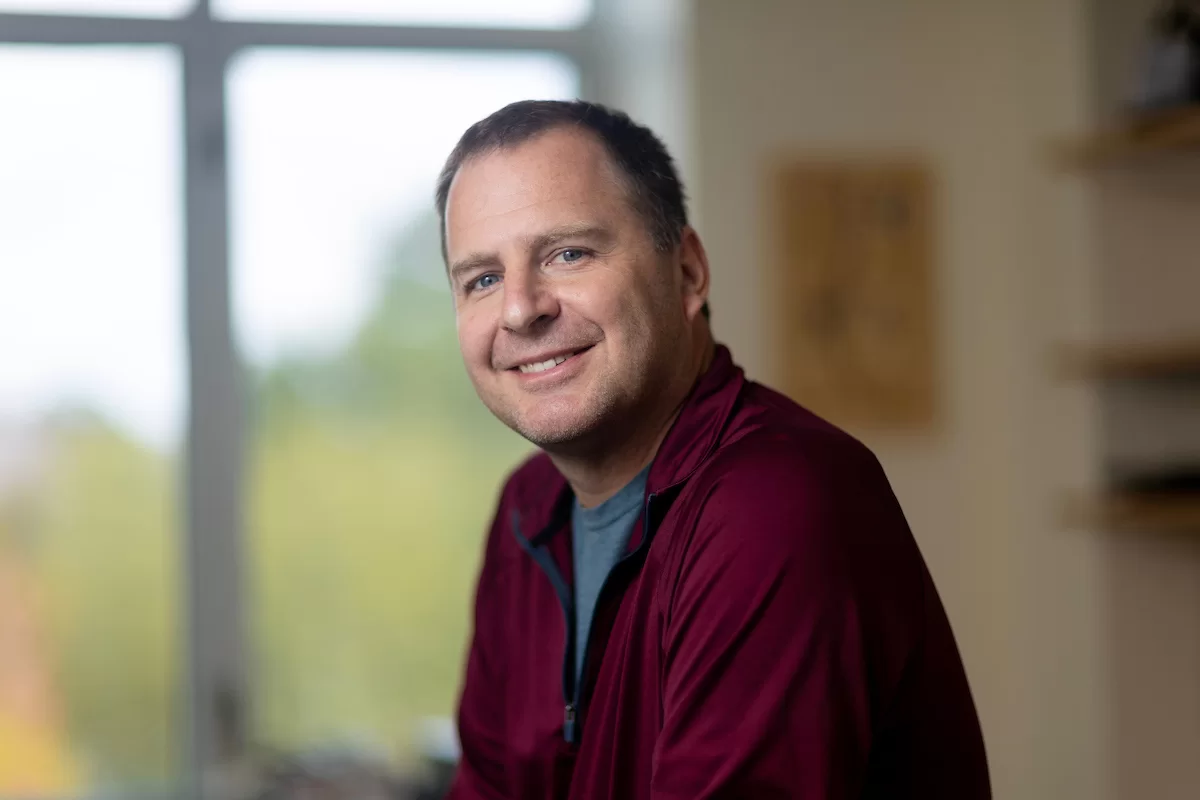
His research, which employs economic modeling tools to achieve understanding of complex topics, reflects a remarkable breadth of interest while involving collaborations with scholars worldwide. Many of his published papers examine how monetary and fiscal policy affect the distribution of income in an economy.
Other papers go beyond conventional topics in macroeconomics, including considerations of dueling in the affairs of honor in the antebellum South, explorations of how wealth and perceived likelihoods of hell factor into religiosity, and studies of how adding additional information influences the ability of models to forecast events. His sustained professional achievements involve many collaborations with scholars around the world.
What It Means to Be a Bates Professor:
It means being able to teach so many exceptional students. When I came to Bates, I expected strong students, but I continue to marvel at their intelligence and curiosity. They go on to do remarkable things, sometimes in economics or finance, but often in entirely unrelated fields, and I just hope to have played a very small part in their successes. It also means being able to research what interests me, even when it isn’t a standard topic for a macroeconomist. The economics department has been a wonderful place to work.
About the Dowling Professorship
The professorship was established by the Vincent Dowling Family Foundation Inc. and John D. Gillespie ’80, retired chair of the Bates Board of Trustees, to honor Porter Dowling ’16 and his graduation from Bates and to provide support for a faculty member in the Department of Economics.
Therí Pickens, Charles A. Dana Professor of English and Africana
Term: 2024–2025 to 2033–2034
A prolific scholar, Therí Pickens creates groundbreaking, award-winning research in Arab American studies, Black studies, comparative literature, and disability studies. As a teacher, her Bates courses include “Black Poetry,” “Contemporary Arab American Literature,” and “African American Literary Criticism.”

Her 2019 book, Black Madness :: Mad Blackness, rethinks the relationship between Blackness and disability. Available in 2025, her debut poetry collection, What Had Happened Was, investigates the complex structures of Black storytelling, addressing topics ranging from Black life, popular culture, and history to individual encounters with pain, love, and chronic disability.
Her public writing, known for its refusal to diminish complexities, has appeared in The New York Times, The Washington Post, Black Girl Nerds, The Counter, and Ms.
What It Means to Be a Bates Professor:
I wouldn’t be the kind of professor I am if the late Sue E. Houchins, associate professor of Africana, hadn’t shown me how to maintain an exciting intellectual life while maintaining rigor in the classroom and clarity about what I offer to the community. This cosseted life privileges me in ways I find dismaying in the midst of ongoing genocides and state-sanctioned violence. If I am to be the kind of professor my students and colleagues need at all, I must remain cognizant of all those tensions about which I teach with ardor and devotion.
Beverly Johnson, Charles A. Dana Professor of Earth and Climate Sciences
Term: 2023–2024 to 2032–2033
Beverly Johnson’s research and teaching has involved hundreds of Bates students since her 2001 appointment to the faculty, helping students understand environmental change on geologic and recent timescales and working toward solutions.
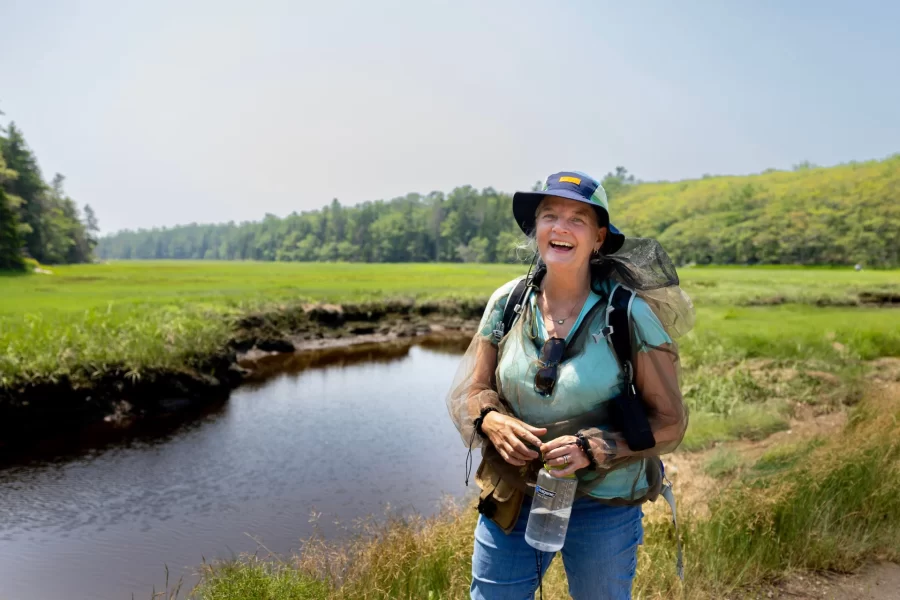
Most recently, Johnson and Bates students have worked to understand and highlight the power of salt marsh conservation and restoration to enhance carbon sequestration. Their work has informed the Maine Climate Action Plan, a 2024 EPA report on regional blue carbon stocks, and the 2024 state greenhouse gas inventory. Johnson is a member of the Coastal and Marine Working Group of the Maine Climate Council.
Johnson is an internationally recognized biogeochemist with collaborators and experience in ecosystems around the world. Her research has uncovered the role of human migration events in massive faunal extinctions by using stable isotopes contained within ancient eggshells from Central Australia and documented changes in nutrient cycling in nearshore environments in the Gulf of Maine.
What It Means to Be a Bates Professor:
What a privilege it is to share the wonders of our Earth system with our fabulous students so that they can better understand their surroundings, engage in environmental issues they find relevant, and envision solutions for the future. Faculty-student research projects are a big part of my department’s culture, and sharing the joy and excitement of scientific discovery with students is one of my favorite things about being a Bates professor.
Francesco Duina, Charles A. Dana Professor of Sociology
Term: 2022–2023 to 2031–2032
Francesco Duina’s teaching and research explores topics in economic and political sociology, international political economy, and globalization.
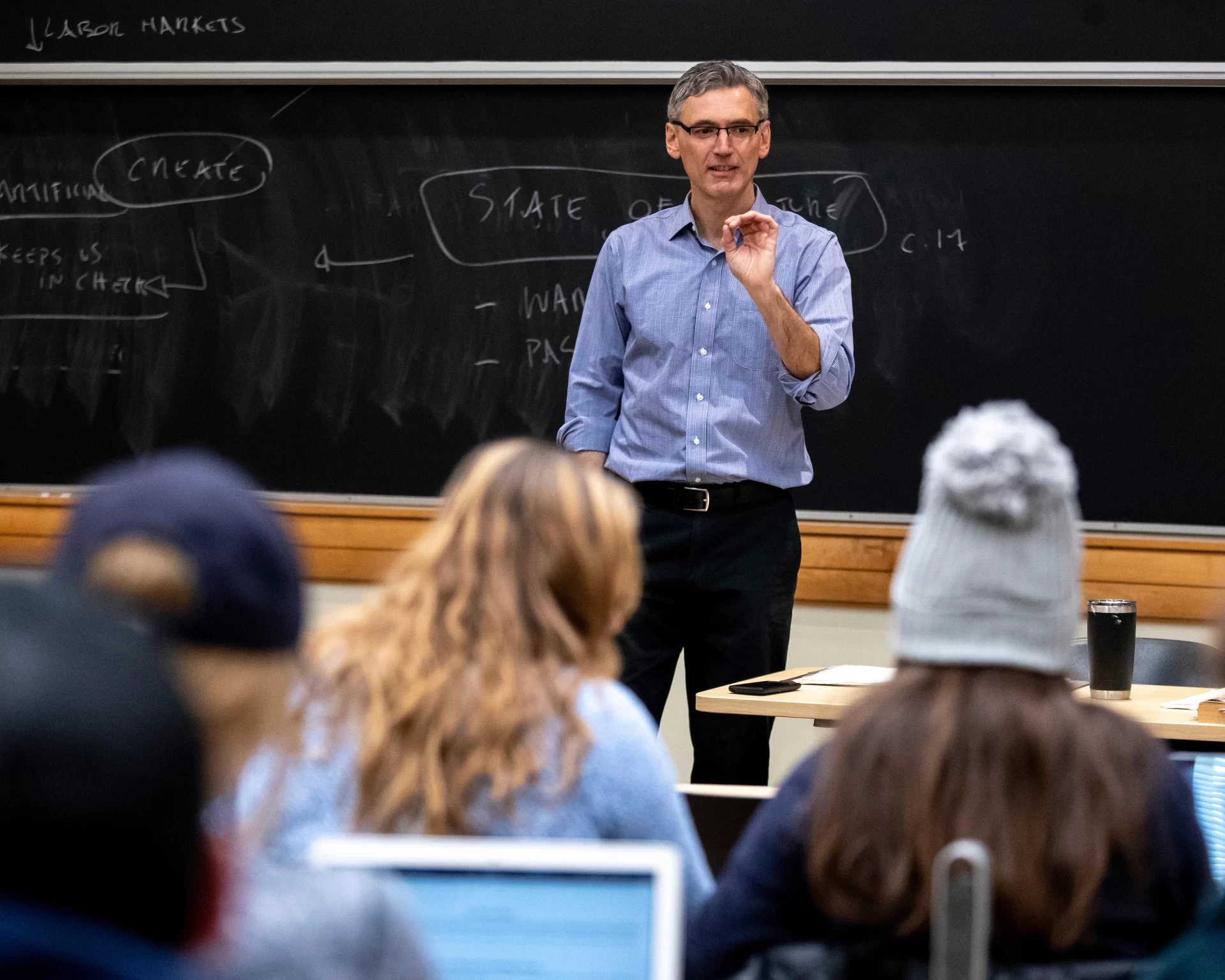
His research has looked at how nation-states shape and respond to the international economy; the design and effects of international economic organizations (particularly the EU); the interaction of culture, institutions, and the economy; and nationalism, populism, and social cohesion.
He has published widely in leading political science and sociology journals, often with student coauthors. He is the author of seven books, including Broke and Patriotic: Why Poor Americans Love Their Country and The Social Construction of Free Trade: The European Union, NAFTA, and Mercosur.
His most recent edited volume is Standardizing the World: EU Trade Policy and the Road to Convergence. He recently led Bates’ partnership in the Jean Monnet Network on Transatlantic Trade Politics, which saw several Bates students participate in summer schools in Canada and Belgium.
What It Means to Be a Bates Professor:
It means working with very bright minds by exposing them to the collective project of human discovery as it relates, given my field, to the social sciences. It also means to invite students to collaborate in that project and, as a result, to grow with them and benefit from their input. At Bates, all this happens with considerable support from the institution as well as freedom. Given all this, being a professor at Bates feels like an amazing experience and privilege.
Lillian Nayder, Charles A. Dana Professor of English
Term: 2022–2023 to 2031–2032
Lillian Nayder teaches courses on 19th-century British fiction, including “Jane Austen: Then and Now,” “The Brontës,” and “Dickens Revised.” She also teaches courses in the medical humanities, such as “Literature, Medicine, Empathy” and “Fictions of Affliction.” Her seminar topics include “The Arctic Sublime” and “Gothic Bodies.”
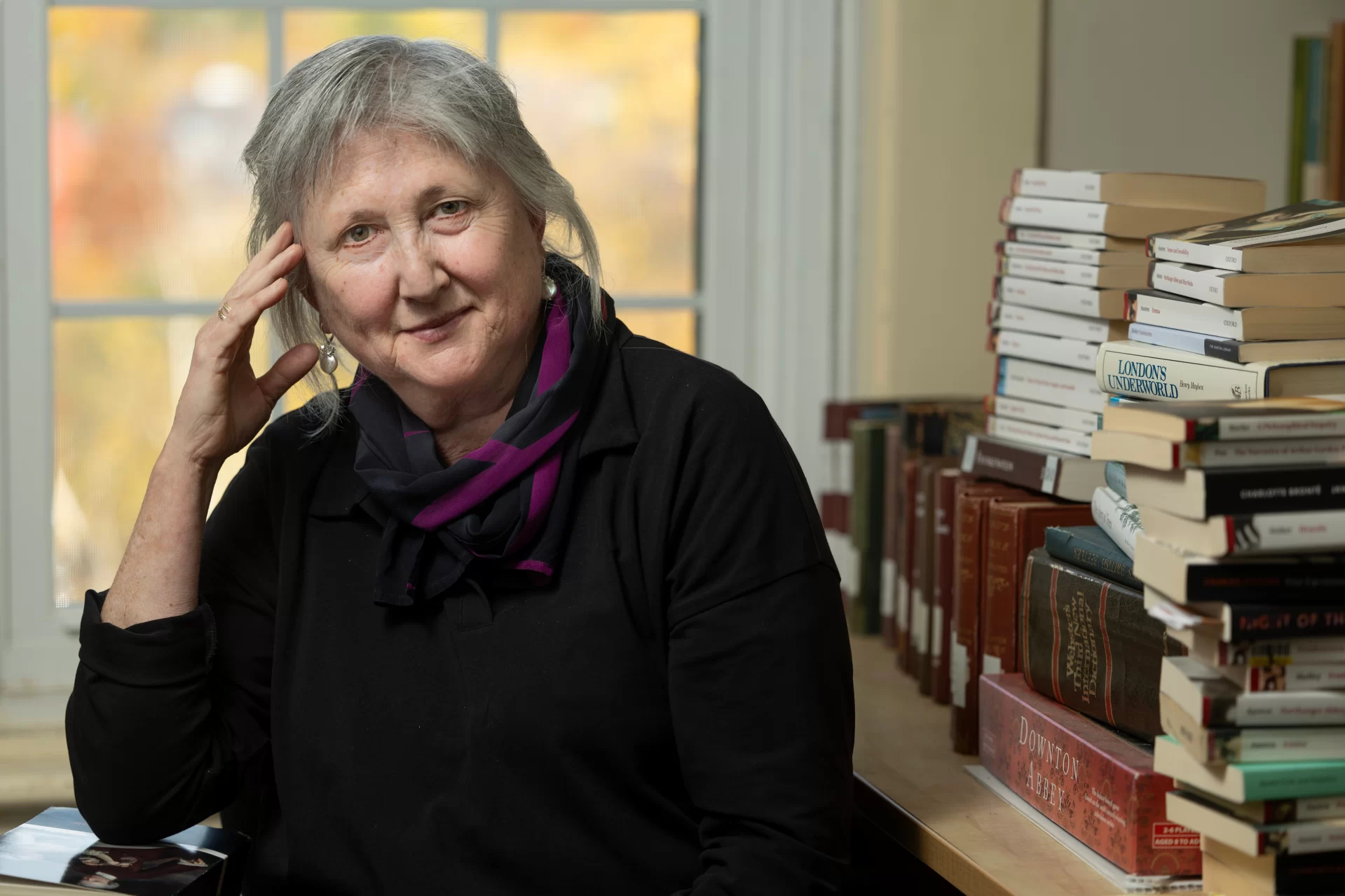
Her research interests center on Charles Dickens and his family, including his wife Catherine Hogarth Dickens, the subject of Nayder’s 2011 biography, The Other Dickens: A Life of Catherine Hogarth, which gained wide recognition for “rehabilitating [Charles Dickens’ wife] as a clever, affectionate woman…devoted to her children,” despite the novelist’s claims to the contrary about her, according to The Guardian.
In 2016, Nayder guest curated an exhibition on Catherine at the Charles Dickens Museum in London. Her 12-part lecture series, “London in the Time of Dickens,” was released by The Teaching Company in 2023, in both video and audio book form. Her current book projects include Charles Dickens: A Fraternal Life, a group biography of the novelist and his three brothers, and Corporeal Dickens, a history of the novelist’s body and its impact on his life and writing.
What It Means to Be a Bates Professor:
It means introducing my students to the joys (and sorrows) of reading voluminous 19th-century novels, as we engage with and resist the pull of their fictional worlds and consider their unspoken workings.
About the Dana Professorships
Established in 1966, the Dana Professorships are the longest-standing endowed chair program at Bates, established in 1966 with a matching grant from the Charles A. Dana Foundation. Since then, Dana professorships have recognized exemplary teaching, valuable research, and significant service to the college.
Sonja Pieck, Clark A. Griffith Professor of Environmental Studies
Term: 2023–2024 to 2032–2033
Teaching courses that span the Global North and South and on diverse topics — ranging from the politics and ethics of wildlife conservation to environmental justice and from international development to a future beyond consumerism — Sonja Pieck helps students grasp the interdisciplinary nature and justice dimensions of environmental studies.
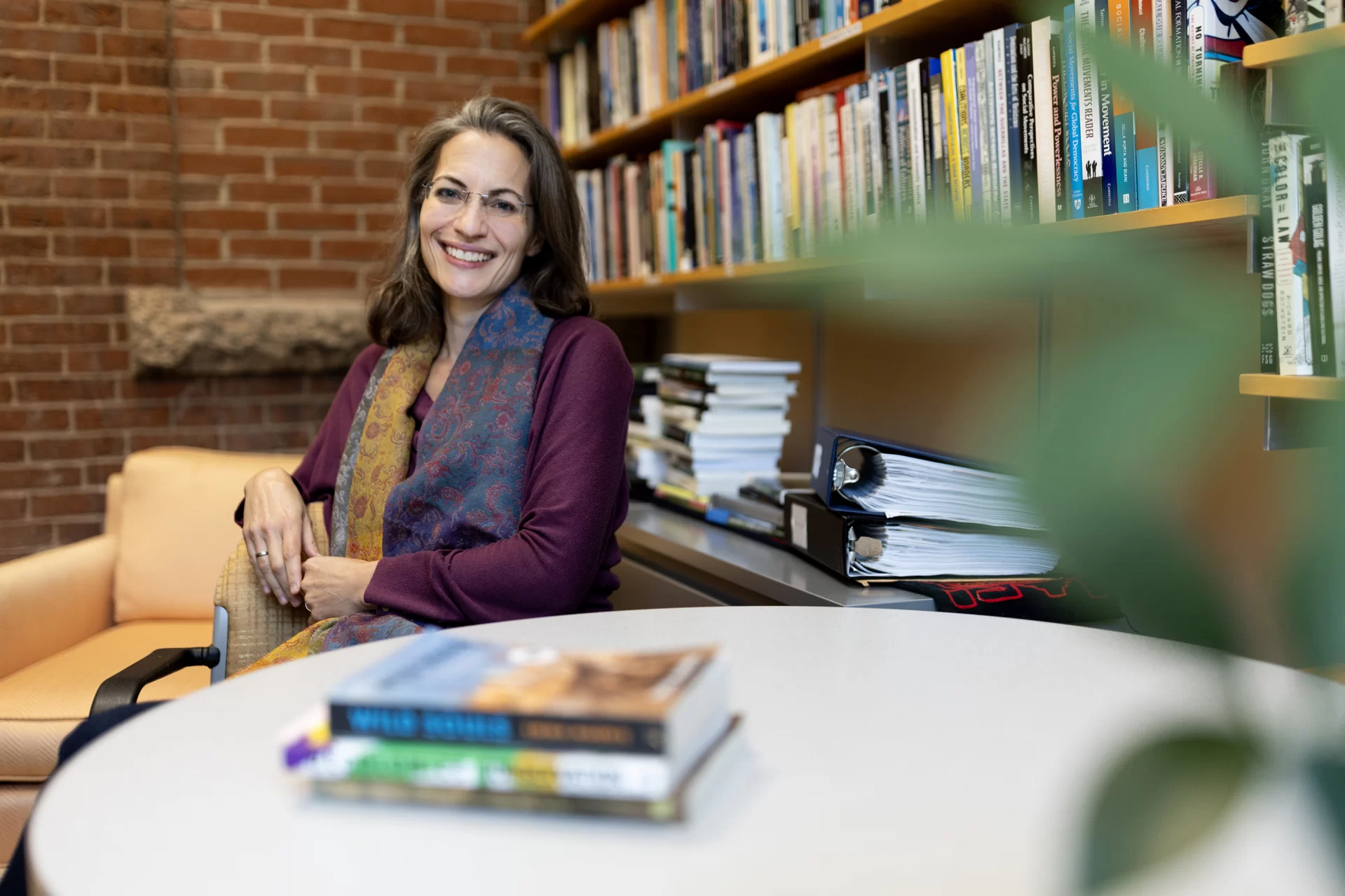
As a human geographer, she looks at how various forms of nature, such as cultural landscapes or biodiversity, are produced and how they become meaningful to different groups of people. She is interested in understanding the complexity of environmental governance and political participation at multiple scales, from local to global.
Her award-winning book, Mnemonic Ecologies, about the Green Belt, the once-militarized border between the former East and West Germany, argues that conservation on wounded land must engage with memory — of humans, animals, and Earth — an argument aimed at an audience beyond academia to the international conservation community.
What It Means to Be a Bates Professor:
The interdisciplinary spaces of the liberal arts help me understand environmental crises as products of uneven power relations — among humans and between human and other-than-human communities. Bates provides me the support, as a scholar and teacher, to explore multifaceted, synergistic approaches on which to base effective and just solutions. In the classroom, I hope to deepen students’ curiosity and empathy and cultivate in them a critical politics of care. It is an honor to help them become more engaged people and changemakers of their generation.
About the Griffith Professorship
The professorship was established by the late Clark A. Griffith ’53, a long-serving member of the Board of Trustees and lifelong cranberry grower on his family farm in South Carver, Mass., to provide support for a professor and program in environmental studies.
Peter Wong, Phillips Professor of Mathematics
Term: 2022–2023 to 2031–2032
Peter Wong’s courses at Bates have covered a wide variety of topics such as calculus, linear algebra, abstract algebra, probability, geometry, and topology.
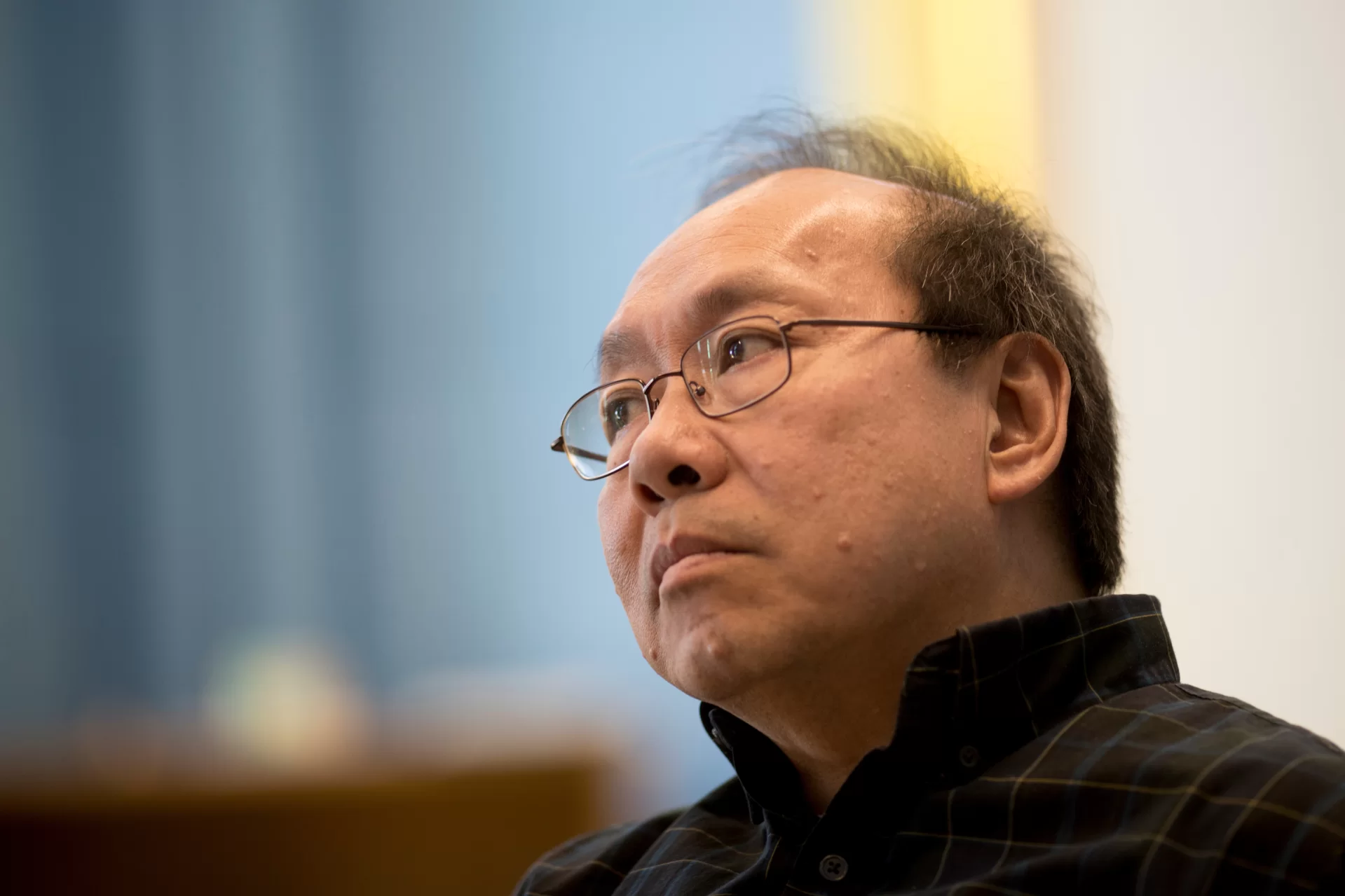
A prolific researcher, he is the author of more than 65 journal articles and has given nearly 200 invited talks and conference presentations. Wong studies topology, the properties of twisted and stretched and otherwise transformed objects, a field with connections to geometry and applications in economics and other fields.
His research reach is global, with collaborators and visiting scholar appointments in India, Brazil, Poland, Italy, France, Spain, the U.K., China, and Mexico, among others. He and his students have studied sangaku, the geometric panels carved into temples in Edo-period Japan.
What It Means to Be a Bates Professor:
It means having the privilege to share my joy of doing mathematics with students and colleagues. I am also grateful to the college for the support of my research endeavor.
About the Phillips Professorship
The professorship was established through the bequest of nearly $9 million in 1998 by the late Charles F. Phillips, the fourth president of Bates, and his wife Evelyn M. Phillips to recognize teaching and scholarly excellence by distinguished appointments from the Bates faculty.
Daniel Riera-Crichton, Betty Doran Stangle Professor of Applied Economics
Term: 2022–2023 to 2031–2032
An applied macroeconomist, Daniel Riera-Crichton teaches courses including “Principles of Macroeconomics,” “International Finance,” and “Time-Series Econometrics.”
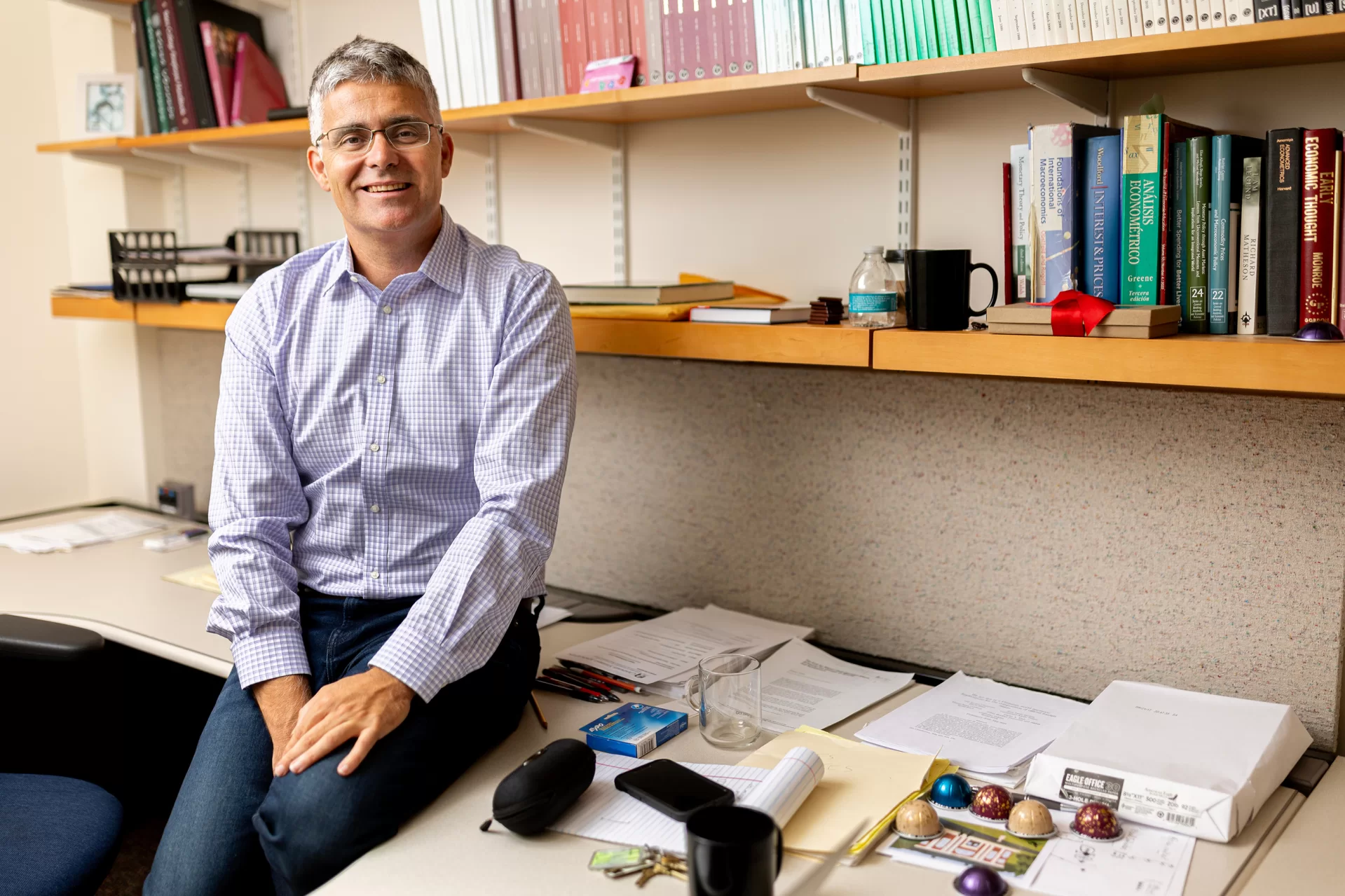
His research interests include international finance, open monetary economics, and applied econometrics, with a focus on financial integration, commodity price shocks, real exchange rates, international reserves, and fiscal policy. His many journal articles, books, and book chapters have investigated issues related to the transmission of financial and international price shocks as well as the effects of fiscal policy in developing markets.
He has held research positions at the World Bank, the Inter-American Development Bank, the International Monetary Fund, and the Bank of Korea, and he has been a visiting faculty member at San Francisco State University, Vassar College and Yonsei University in South Korea.
What It Means to Be a Bates Professor:
Being an economics professor at Bates College means engaging with a diverse, intellectually curious student body in a liberal arts setting. It involves fostering critical thinking and analytical skills through small, discussion-based classes. Professors are committed to teaching excellence and scholarly research, integrating interdisciplinary perspectives. They mentor students closely, encouraging application of economic principles to real-world issues. Additionally, they equip students with practical tools for life beyond Bates, empowering them to succeed in future careers and endeavors.
Stangle Professorship
The professorship was established by Bruce Stangle ’70 and his wife, Emily Siegel Stangle ’72, to honor Bruce’s mother, the daughter of Irish immigrants who became a businesswoman, community volunteer, and mother of five. The professorship is awarded to a tenured faculty member in economics whose work in teaching and research is exemplary.
Amy Bradfield Douglass, Whitehouse Professor of Psychology
Term: 2024–2025 to 2033–2034
Amy Bradfield Douglass is a social psychologist who explores psychology and law, specifically eyewitness testimony, including how witness memory can be profoundly distorted by subtle interactions with other witnesses and investigators.
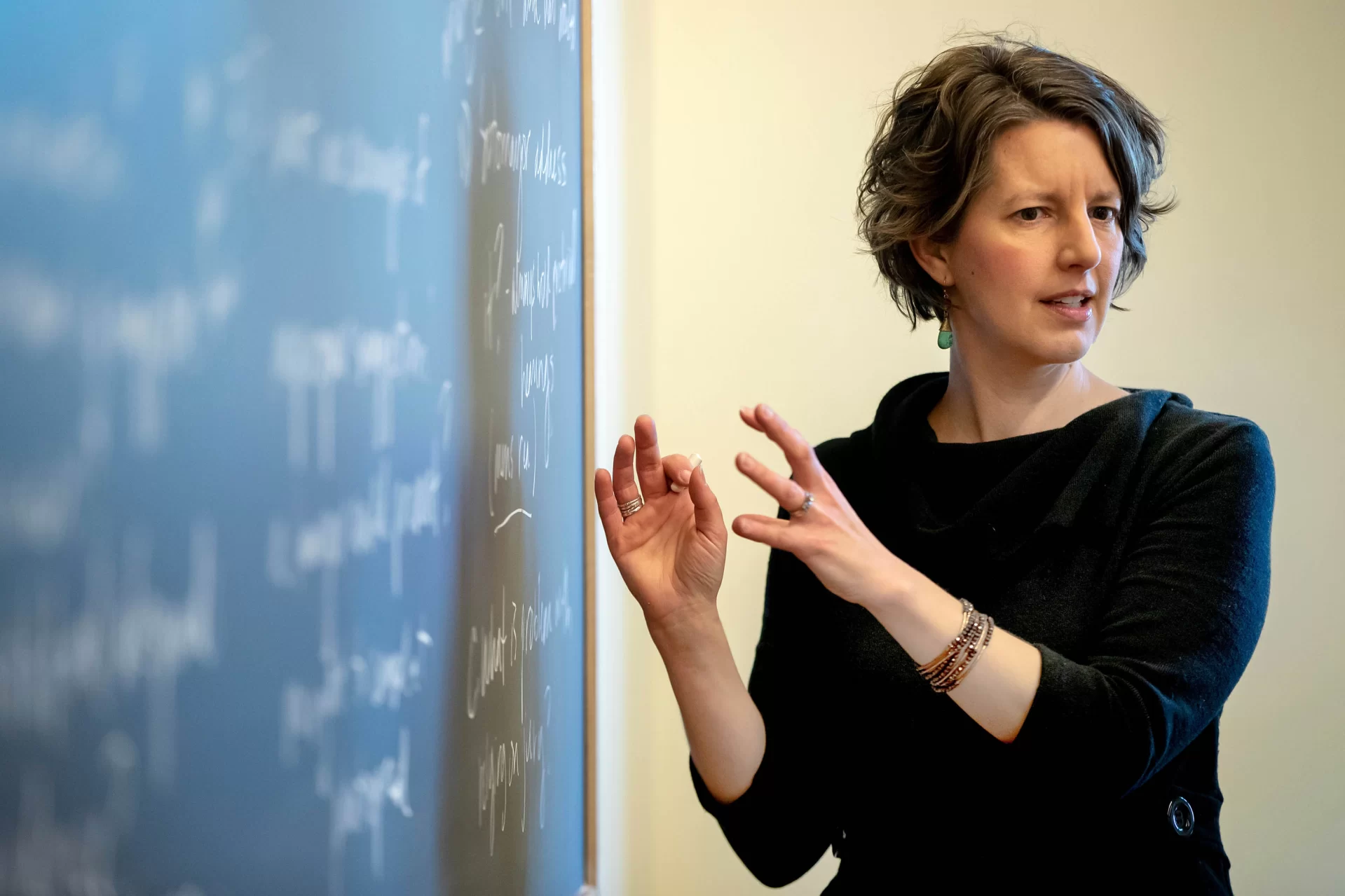
At Bates, her courses include “Statistics” as well as “Psychology of Religion,” “Psychology and Law,” and a new First-Year Seminar in fall 2024 titled “The Psychology of Wrongful Convictions.”
In 2022–23, she was awarded a competitive Fulbright U.S. Scholar fellowship to travel to Japan to research eyewitness memory distortion. Widely published and the recipient of regular funding from the National Science Foundation, Douglass recently joined the authorship team for Wrightsman’s Psychology and the Legal System, the most popular undergraduate textbook for students studying psychology and law, and coauthored an edited book for psychological scientists titled Psychological Science and the Law (with Neil Brewer).
What It Means to Be a Bates Professor:
Being a Bates professor is a dream job for me. I have the opportunity to work with creative and brilliant colleagues, thoughtful and compassionate students, and wonderfully caring staff. With my students in particular, the collaborative nature of our work is truly engaging. That work can range from helping a student accomplish their goal of speaking up in class more, to connecting them with a community partner to advance criminal justice reform, to preparing an honors thesis for publication. In all cases, having the opportunity to work closely with students is deeply meaningful.
About the Whitehouse Professorship
The professorship was established by the late David C. Whitehouse ’36, an executive with the Container Corp. of America from 1944 to 1978, and his wife, Constance T. Whitehouse, to celebrate freedom of expression and inquiry, respect for human dignity, and exceptional teaching, scholarship, and service.
Faculty Featured
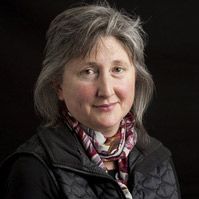
Lillian R. Nayder
Charles A. Dana Professor of English

Paul J. Shea
Dowling Family Professor of Economics
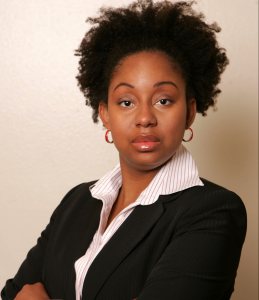
Therí Pickens
Charles A. Dana Professor of English and Africana
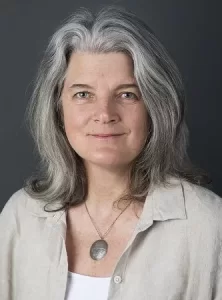
Beverly J. Johnson
Charles A. Dana Professor of Earth and Climate Sciences
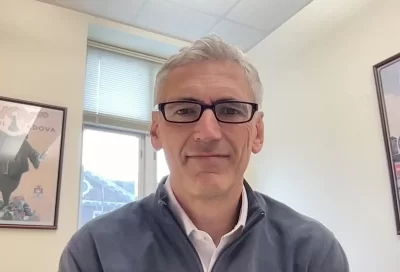
Francesco G. Duina
Charles A. Dana Professor of Sociology
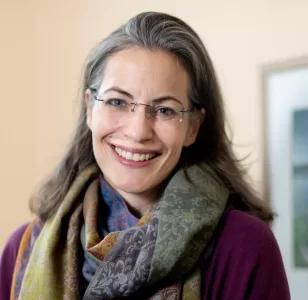
Sonja K. Pieck
Clark A. Griffith Professor of Environmental Studies

Peter N. Wong
Phillips Professor of Mathematics

Daniel Riera-Crichton
Betty Doran Stangle Professor of Applied Economics
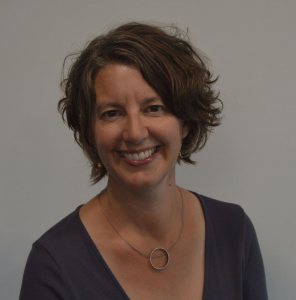
Amy Bradfield Douglass
Whitehouse Professor of Psychology
